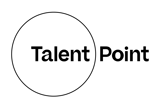Neurodivergent New Starters: The Importance of the Right Environment, and How to Find It
Starting a new job in a completely new industry can be a challenge. When you're neurodivergent, it can feel catastrophic.
Here’s my story on why a good environment is so important – and five tips to find the right one for you.
I was diagnosed with ADHD around two years ago now. It was a bittersweet feeling.
On the whole, I felt an overwhelming sense of relief - my struggles felt validated, and I knew it was the start of a journey that would help me take my day-to-day life off of ‘hard mode’.
I also felt frustrated and resentful - because I now knew that my life up until that point was so much harder than it needed to be.
I struggled profusely at school. The "one size fits all" approach didn't fit me. If I didn't take to something quickly, it was over. I had trouble making and keeping friends due to the fact I couldn't understand many of those around me, and took any negativity deeply personally (and we all know how cruel kids can be).
Masking started to become an innate habit - into college, university and beyond, I became a chronic people pleaser. I would minimise my needs, compromise my boundaries, and push myself into burnout - for the sake of impressing those around me.
I would exhaust myself in workplaces that had already left me feeling unappreciated.
Due to the stigmatisation of neurodivergence, for a long time, I didn’t so much as consider that it could be me. At the time of growing up, when I thought of ADHD, I thought of the class clown who was always getting into trouble. The overall perception of cognitive disorders such as this is slowly improving – but we’re not there yet. We must remind ourselves that these sorts of generalisations are harmful, and has already led to an epidemic of undiagnosed and late-diagnosed individuals.
Now diagnosed, I was nervous to transition from Hospitality to a 9-5.
I joined Talent Point largely due to their value in a positive, supportive culture and investment in Learning & Development. The interviews had gone well. I loved speaking with every person I’d interacted with along the way. I was excited by my offer, and felt great about the company and the job – but at this stage, nothing could prevent the inevitable imposter syndrome.
I was already preparing myself to feel like I was back in school.
At GCSE, I failed Science. I barely scraped a pass in Maths. I had no experience in the tech space, and struggled to get my head around even its simpler concepts. I always gravitated towards creative subjects in the past, so had told myself I didn’t have the “right brain” for it.
During the onboarding process, upon declaring my ADHD, I had to stop myself from over-explaining. My future colleagues were in frequent contact, telling me they were eager for my start – but my own self-doubt and past experiences left me terrified of a retracted offer.
The path to finding the right workplace isn’t easy – it was a rollercoaster for me to get to this point. But, I’ve also learnt a few things along the way that I wanted to share on how to assess the right employer for you.
- Be mindful of how your potential/new employers communicate – do they keep you in the loop? Do they speak positively about others? Do they use dismissive or derogatory language?
- Be conscious of what the job’s selling points are. Does it feel like they truly value those who work there? Are the selling points appealing to you?
- Pay attention to how they treat your time – are they punctual? Are they mindful of your schedule? Do they allow ample time for you to ask questions?
- Consider if you feel truly listened to throughout the process. Can you see yourself being honest when you’re having a tough day?
- Finally - be easy on yourself. Identify and uphold your needs and boundaries. The process of seeking and starting a new job is overwhelming.
There’s been moments, despite plentiful support, that I felt lost and upset. Things that seem easy for others can be harder for neurodivergent people. Two months on, I feel happy, fulfilled and appreciated at Talent Point. I’m even giving presentations on complex markets and roles that sit within the world of tech – which is worlds away from anything I’d expected to be doing.
This isn’t to say my struggles are gone. When your brain is wired that bit differently - whether or not you're diagnosed, treated, or medicated – it will always be a part of you in some way.
The crucial difference is that I am able to be transparent about these struggles – and have support when I need it. When I don’t understand something, there are always people who will talk me through it with eagerness. I’m trusted to work with autonomy. Personal boundaries and a work/life balance is actively encouraged.
Despite the hardships it comes with, there are many things my ADHD bring to me and my life that I value. It’s part of what makes me so excitable and passionate. I’m thankful to have my brain wired this way!
By Amber McAuley

.jpg?width=300&name=Why%20I%20quit%20being%20an%20Agency%20Recruiter%20(and%20how%20it%20changed%20my%20life!).jpg)